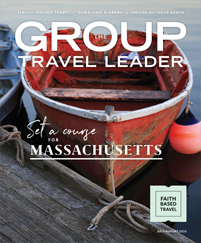
The Deepwater Horizon oil spill could cost tourism-related businesses in the Gulf region as much as $22.7 billion over three years, according to a study released in July by the U.S. Travel Association (USTA).
The study, undertaken by USTA and Oxford Economics, also predicts that a proactive marketing campaign could significantly mitigate the economic damage, reducing the amount of losses by up to $7.5 billion. As a result, USTA is calling on the federal government to secure $500 million in funds from BP to pay for advertisements, public relations initiatives and other efforts to influence public perception of conditions on the Gulf Coast.
“USTA is working on educating the government on the importance of travel and tourism to the region and the reality of what’s at stake,” said association president Roger Dow. “Travel is a perception business. In the wake of any disaster, facts often take a back seat to fears and rumors. Informing the public is the most important thing a government can do.”
An integral industry
Tourism is an integral industry to the communities along the Gulf of Mexico in Texas, Louisiana, Mississippi, Alabama and Florida. USTA estimates that 32 percent of all jobs in the Gulf region are tied to tourism, far exceeding the national average of 12 percent. Travel-related businesses sustain some 400,000 jobs and generate an estimated $34 billion on the coast each year, nearly seven times more than the $5 billion Gulf fishing industry.
“The sector being affected now is very diverse,” said Adam Sacks, managing director of Oxford Economics. “It includes retail, a variety of services and all of the suppliers to the hotels, restaurants and recreation companies. There’s an effect on real estate as well.”
Preliminary surveys from the region indicate that the oil spill has already had a significant impact on tourism traffic. Thirty-two percent of travelers who had made plans to visit the Gulf side of Florida this year have changed their minds, according to one recent survey. And a survey by the Louisiana tourism office found that 26 percent of travelers planning to visit the state have since canceled or delayed their trip.
The numbers indicate a knee-jerk public reaction that far outpaces the reality of damage to the Gulf Coast. BP engineers are having success in permanently stemming the flow of oil from the damaged well, and recent reports indicate that much of the spilled crude has dissipated due to massive cleanup efforts and the impressive self-renewal power of the sea.
In many of the places where tar balls and oil slicks did come ashore, crews have already removed the offending substances, and beaches have reopened to visitors.
“Leisure travelers can avoid an entire region if there’s even the slightest risk or perception that they’re going to encounter oil,” Sacks said. “That can linger much longer than the crisis itself.”
Analyzing similar events
To create an estimate of potential economic impact on Gulf Coast tourism, Oxford Economics studied 25 different disasters and crises around the world that have taken place over the last 30 years. Subjects included hurricanes, the Thailand tsunami, severe acute respiratory syndrome (SARS) in Canada and other oil spills. Hurricane Katrina in 2005 was a key case study — now five years after the disaster, New Orleans is still 25 percent below prestorm visitation levels.
“What we found is that this particular crisis will affect the Gulf economies for up to 36 months,” Sacks said. “It will result in a loss of tourism revenue of up to $22.7 billion. That’s 25 percent of one year’s tourism spending, a remarkably high number when you think that the impacts vary as you go around the region.”
Mississippi and Alabama are expected to sustain the highest total losses, at around 40 percent of one year’s revenue, and Louisiana and Florida could see an impact equaling 37 percent and 27 percent, respectively.
But the case studies also yielded information on how destinations can lessen the impact of disasters. The Oxford Economics team found that emergency marketing initiatives can substantially mitigate the losses due to public perception. During the 2003-’04 SARS outbreak in Canada, for example, the Canadian government estimated a $20 return on investment for every dollar of emergency marketing funds spent on communications with consumers.
As a result, USTA is calling for a $500 million emergency marketing commitment from BP, which could significantly reduce the $22.7 billion loss estimate.
“That cuts the impact by a full third,” Sacks said. “It actually shaves off $7.5 billion by correcting misperceptions and motivating travel to the region. It’s the smart money, just from a cost-benefit analysis.”
Industry takes action
With the findings of the study in mind, USTA has released a Roadmap to Recovery, which it says will save Gulf Coast businesses billions of dollars. In addition to the $500 million emergency marketing fund, the proposal calls on the government to incentivize travel to the Gulf and to make local businesses whole.
“The federal government should consider a wide range of incentives for business and leisure travelers that will help rebuild travel to the affected areas,” Dow said. “In order for the local travel industry to remain viable, the federal government has to intervene and provide tax incentives and increased access to capital. Those responsible should provide the proper compensation to make those businesses whole.”
Other tourism industry groups are taking steps to help the affected areas as well. NTA this summer held a series of crisis management and media relations seminars for tourism professionals and others affected in Biloxi, Miss.; Houma, La.; Gulf Shores, Ala.; and Pensacola, Fla.
“Our purpose is to help change the perception that the Gulf Coast is closed,” said NTA president Lisa Simon. “Not to minimize the seriousness of the oil spill, but its impact on the beaches is not as widespread as it appears. We want to make sure that visitors and the travel trade receive complete and accurate information about all there is to do in the region.”
NTA is also sponsoring www.gulfcoasttravelupdate.com, a website that offers information on travel conditions in various Gulf Coast destinations. A similar site, www.gulftravelupdate.com, is being administered by USTA.












